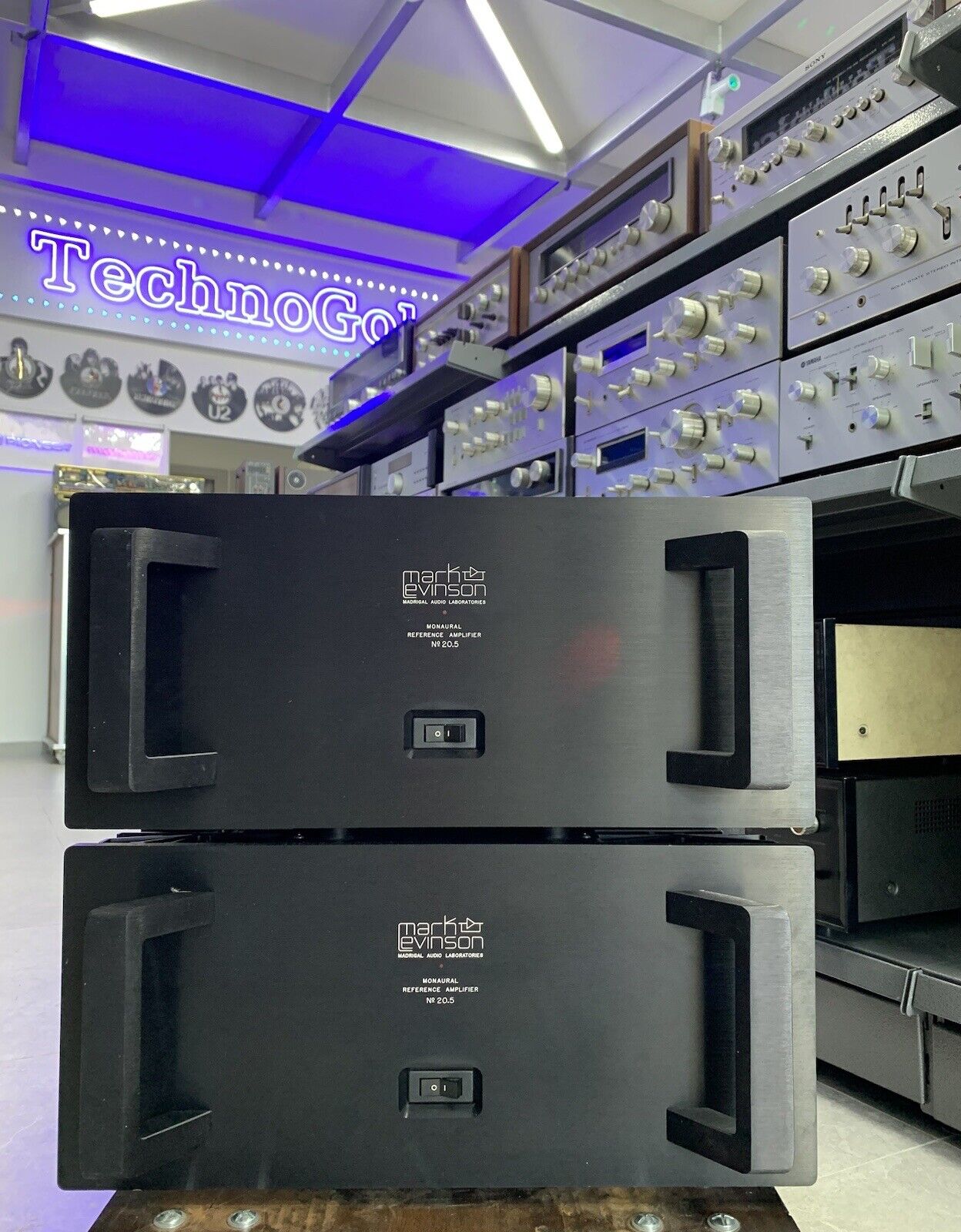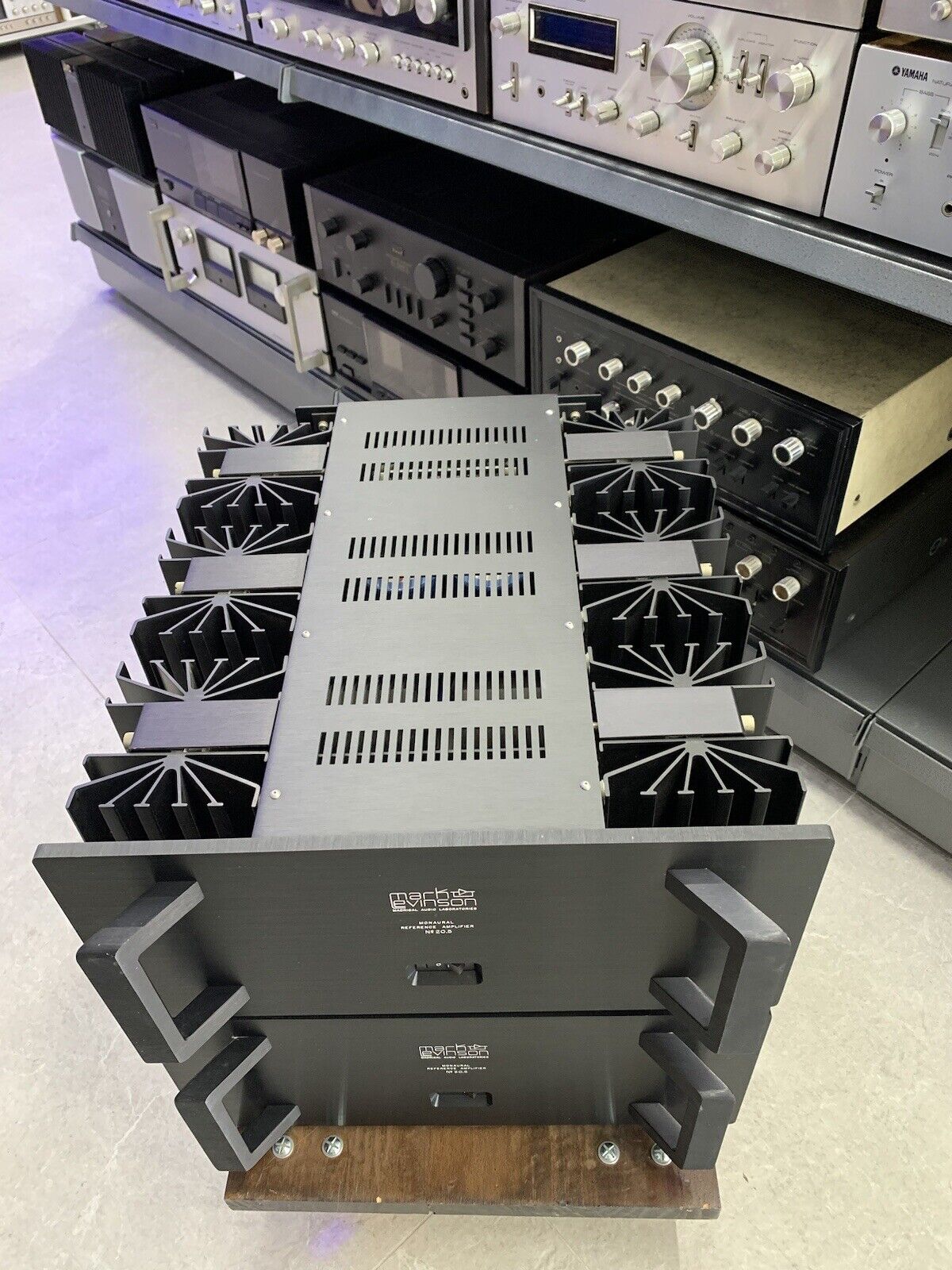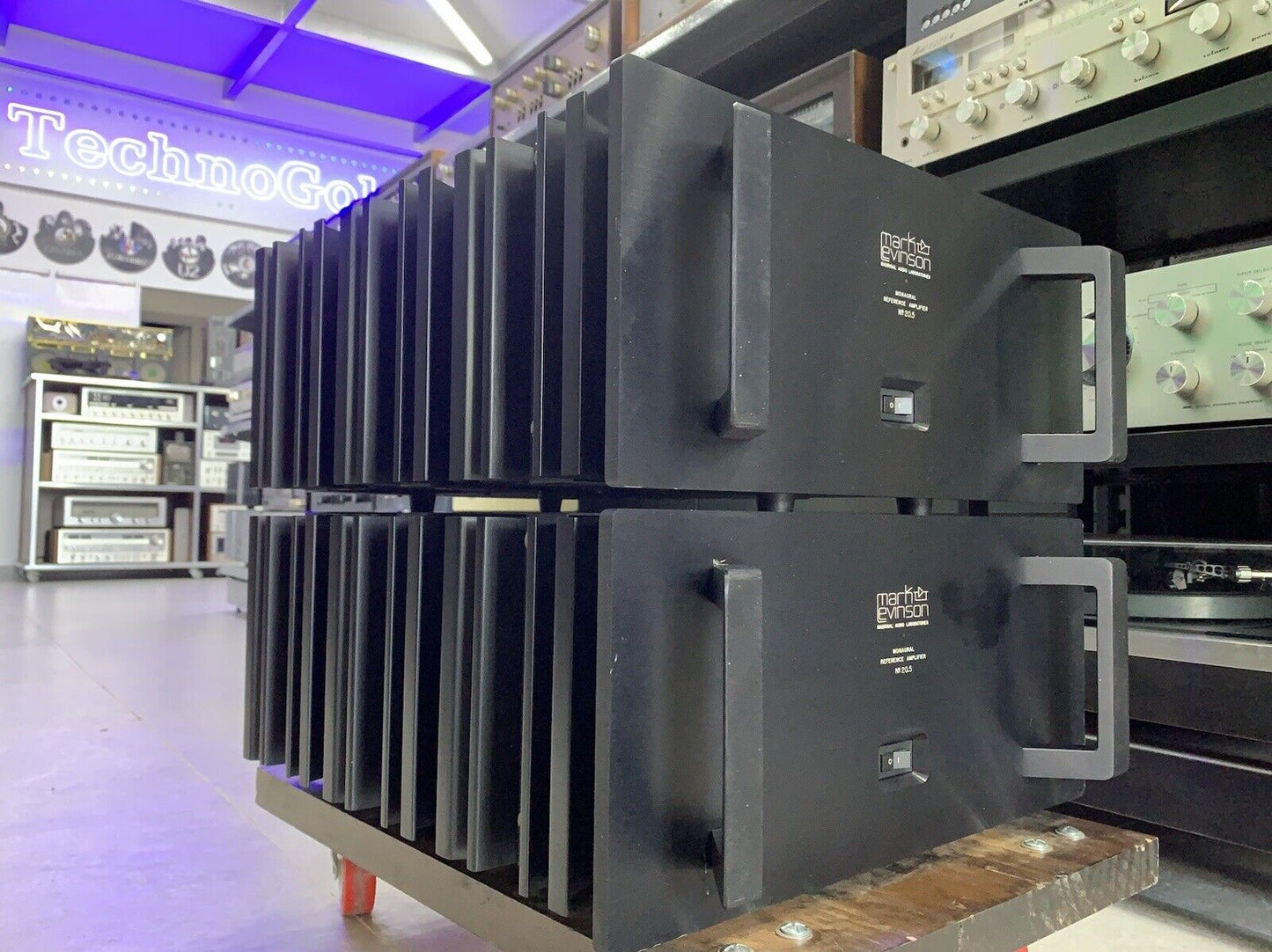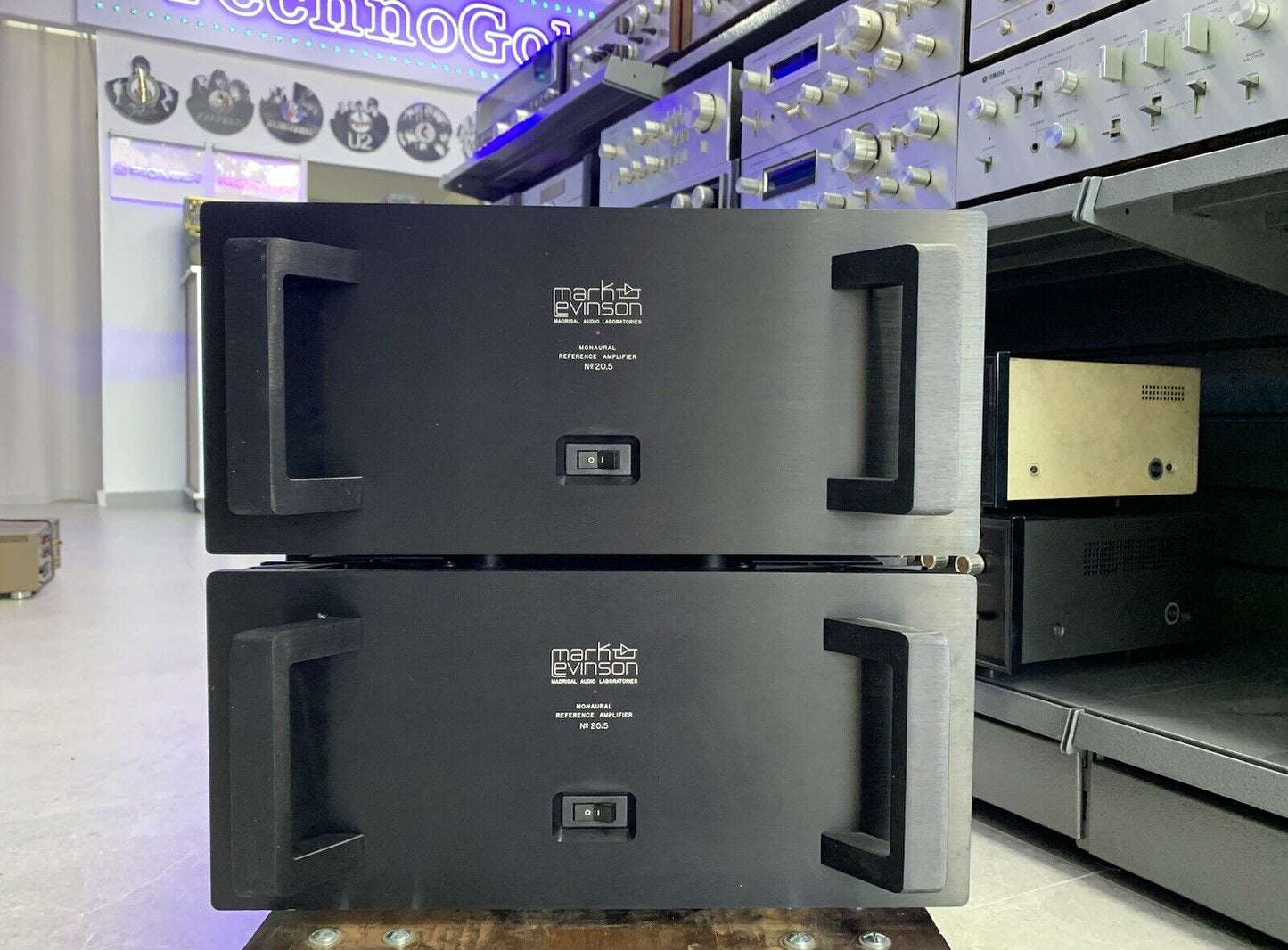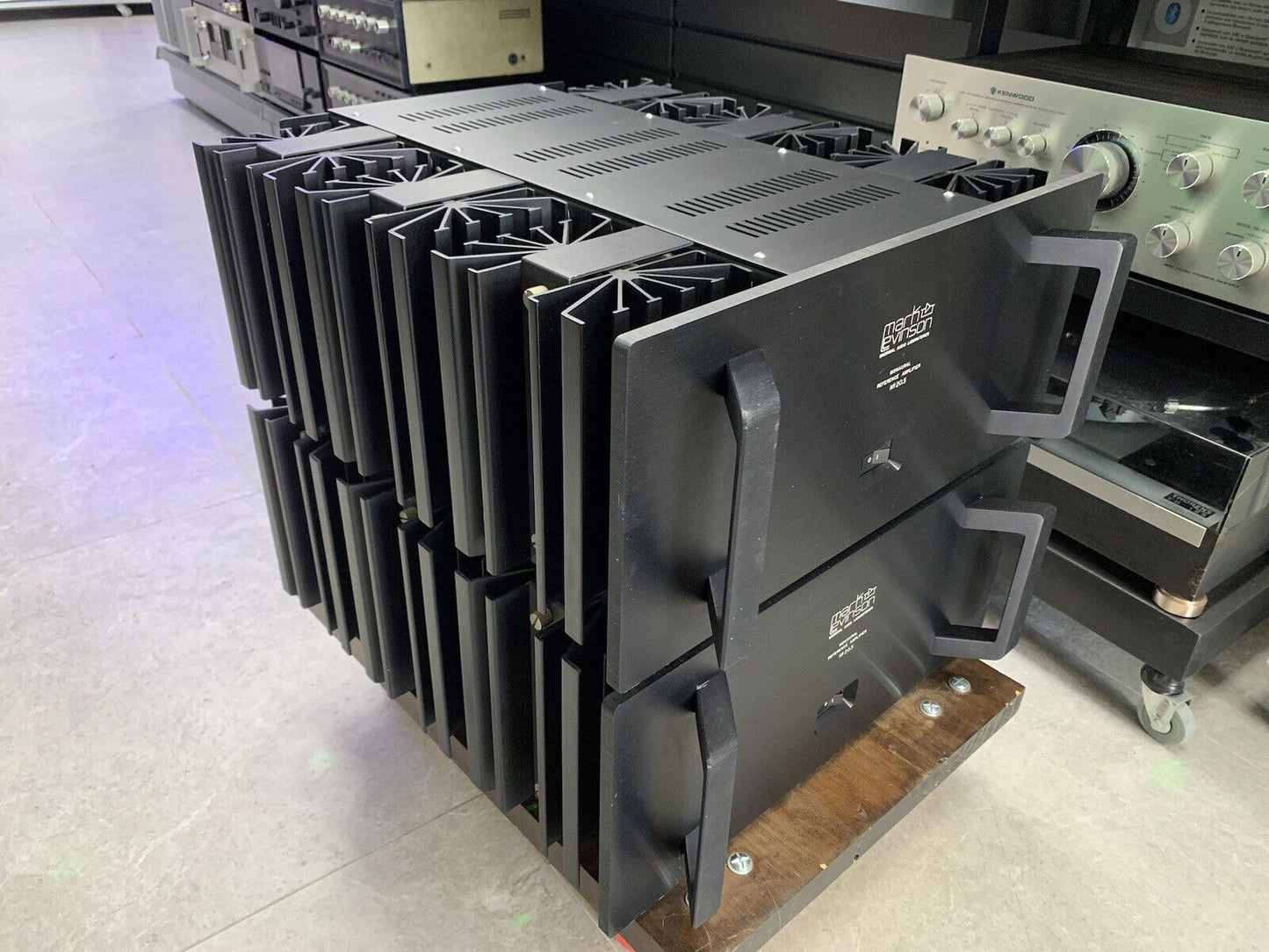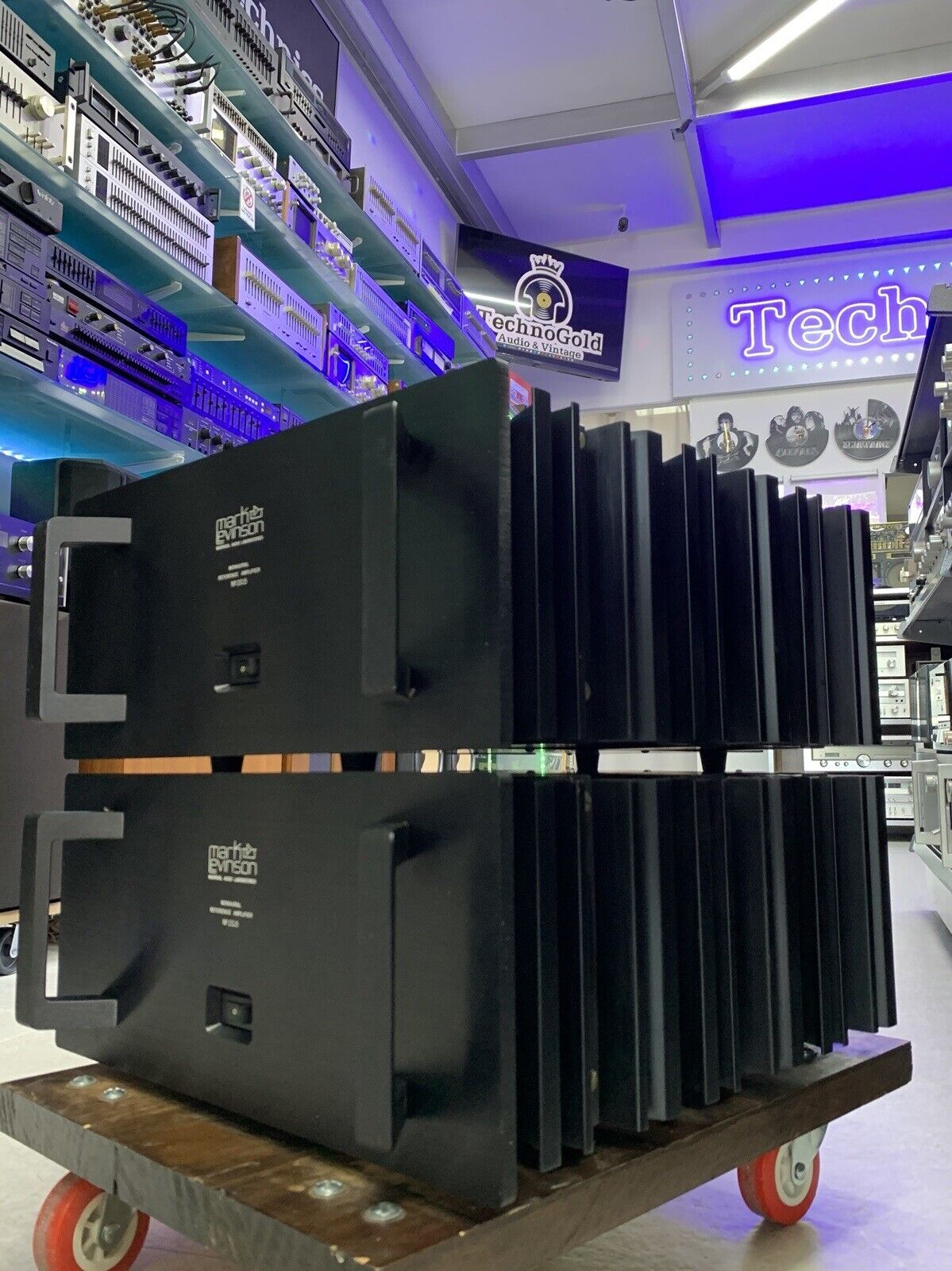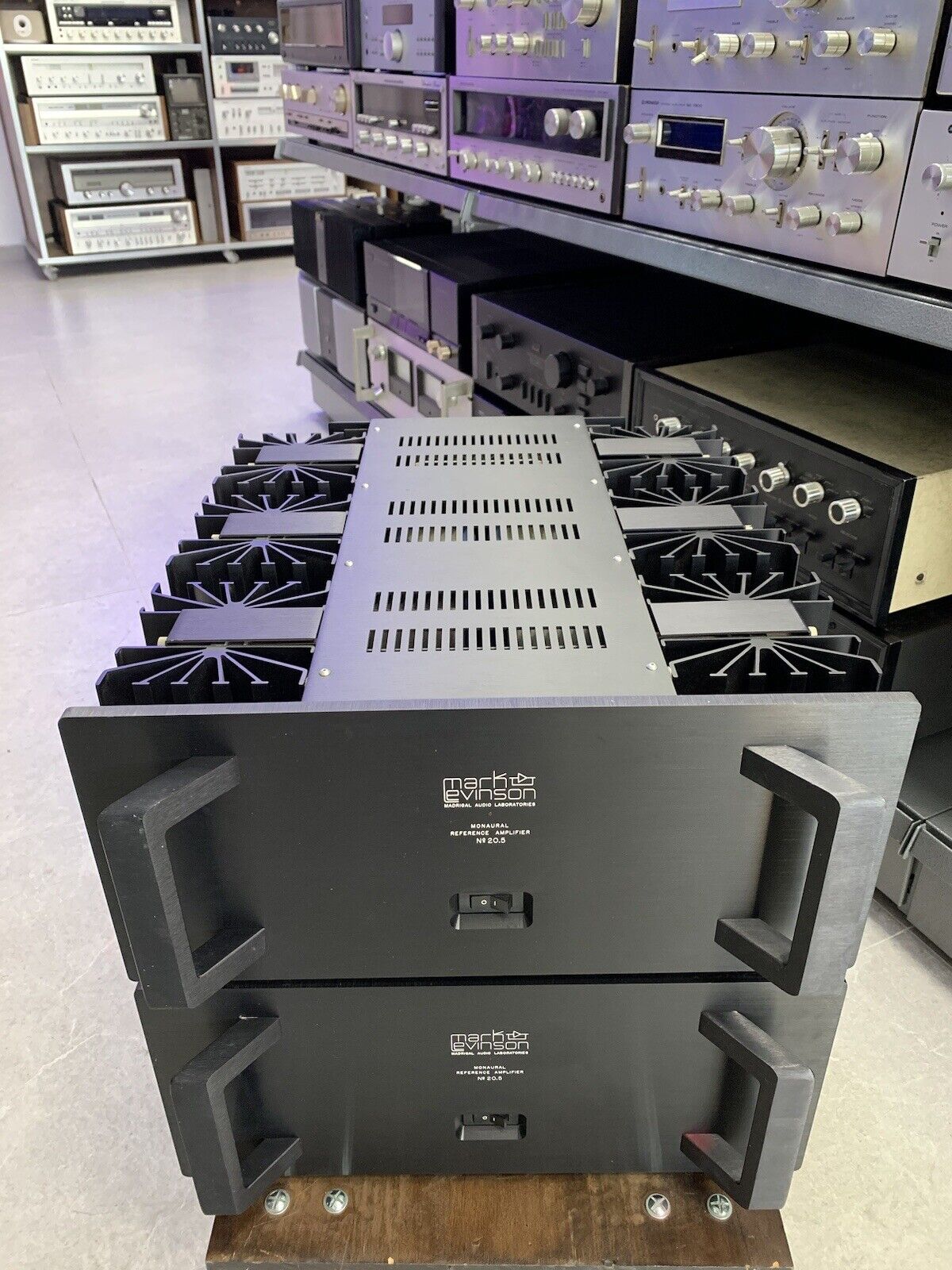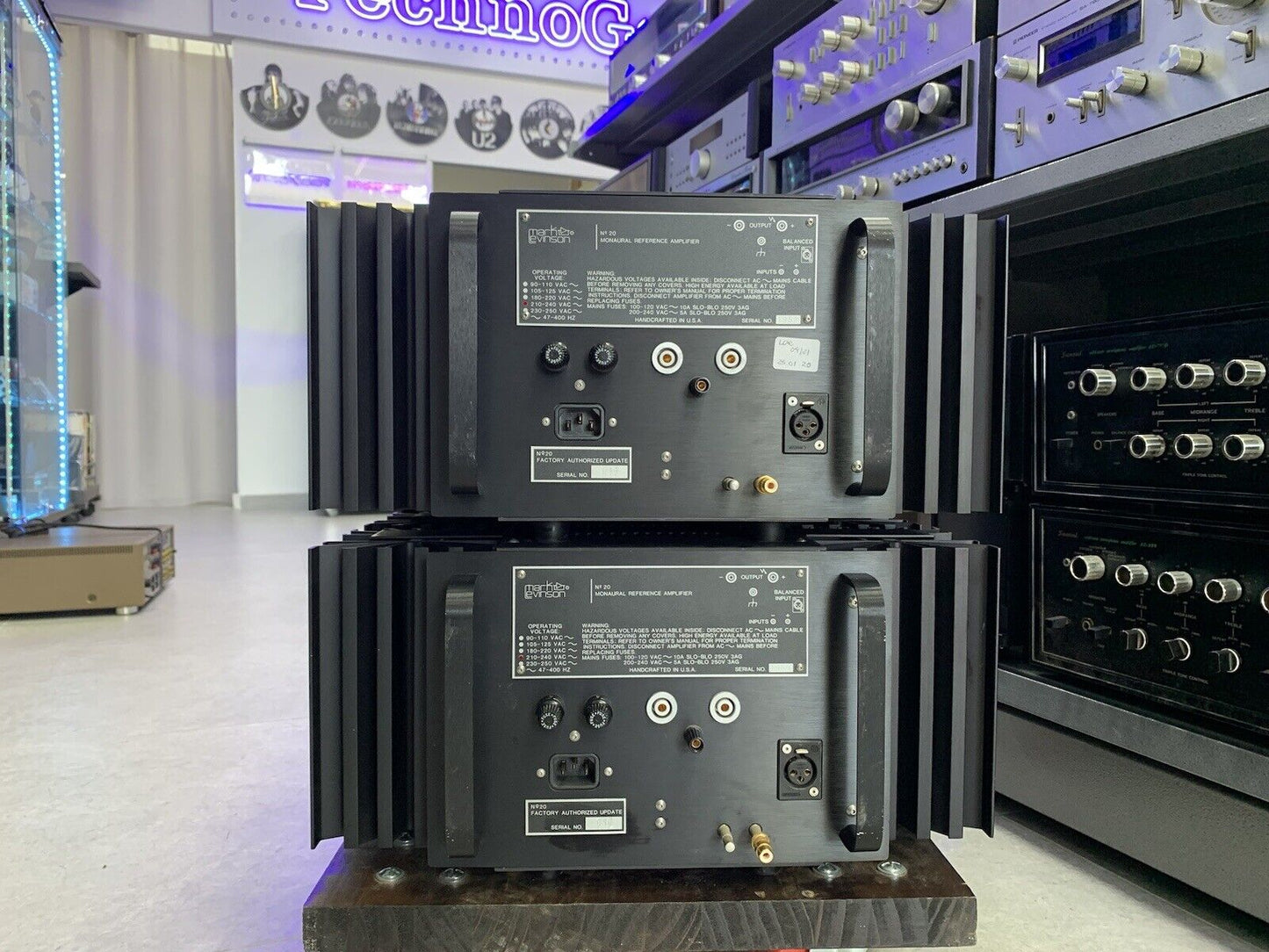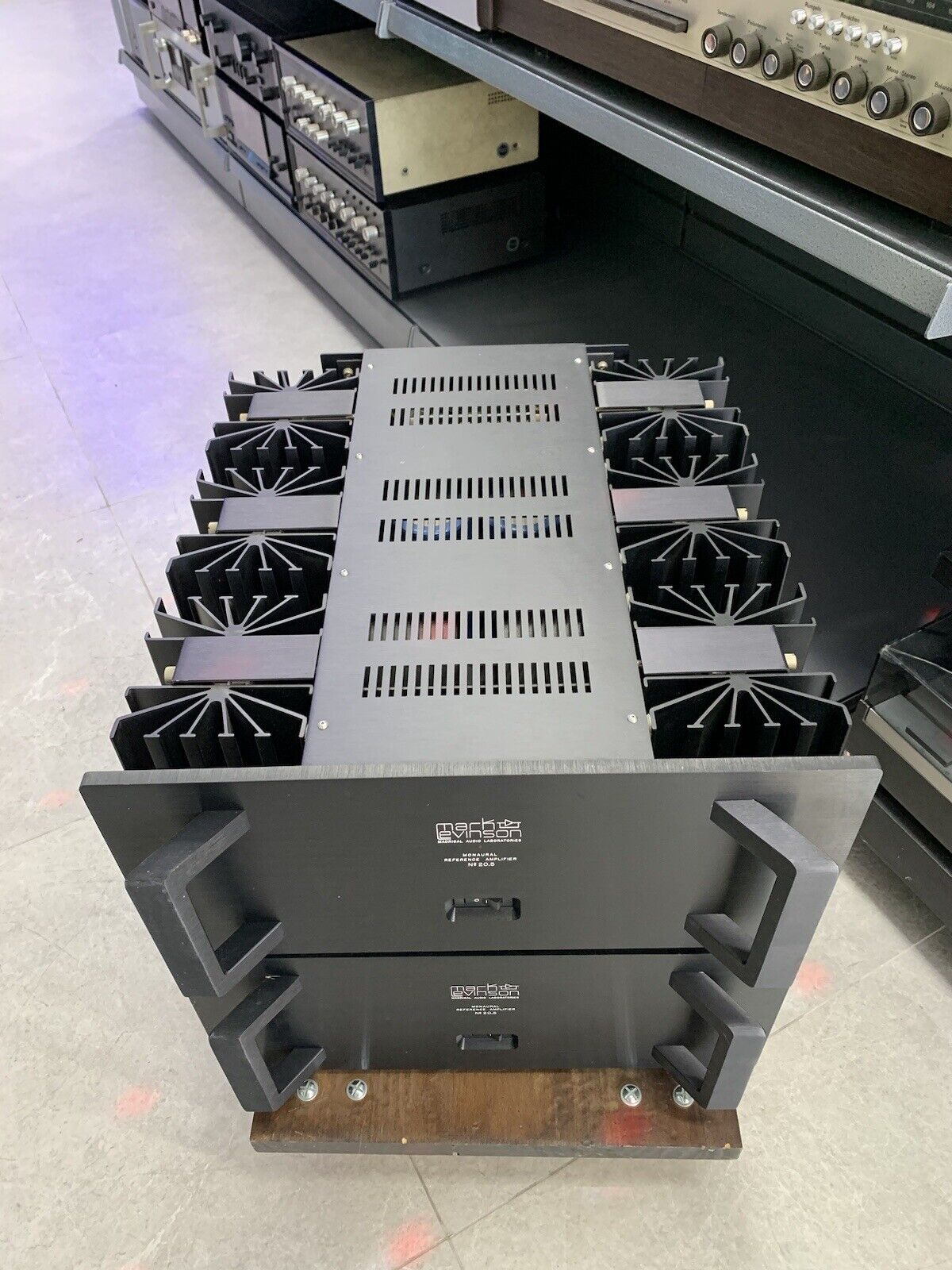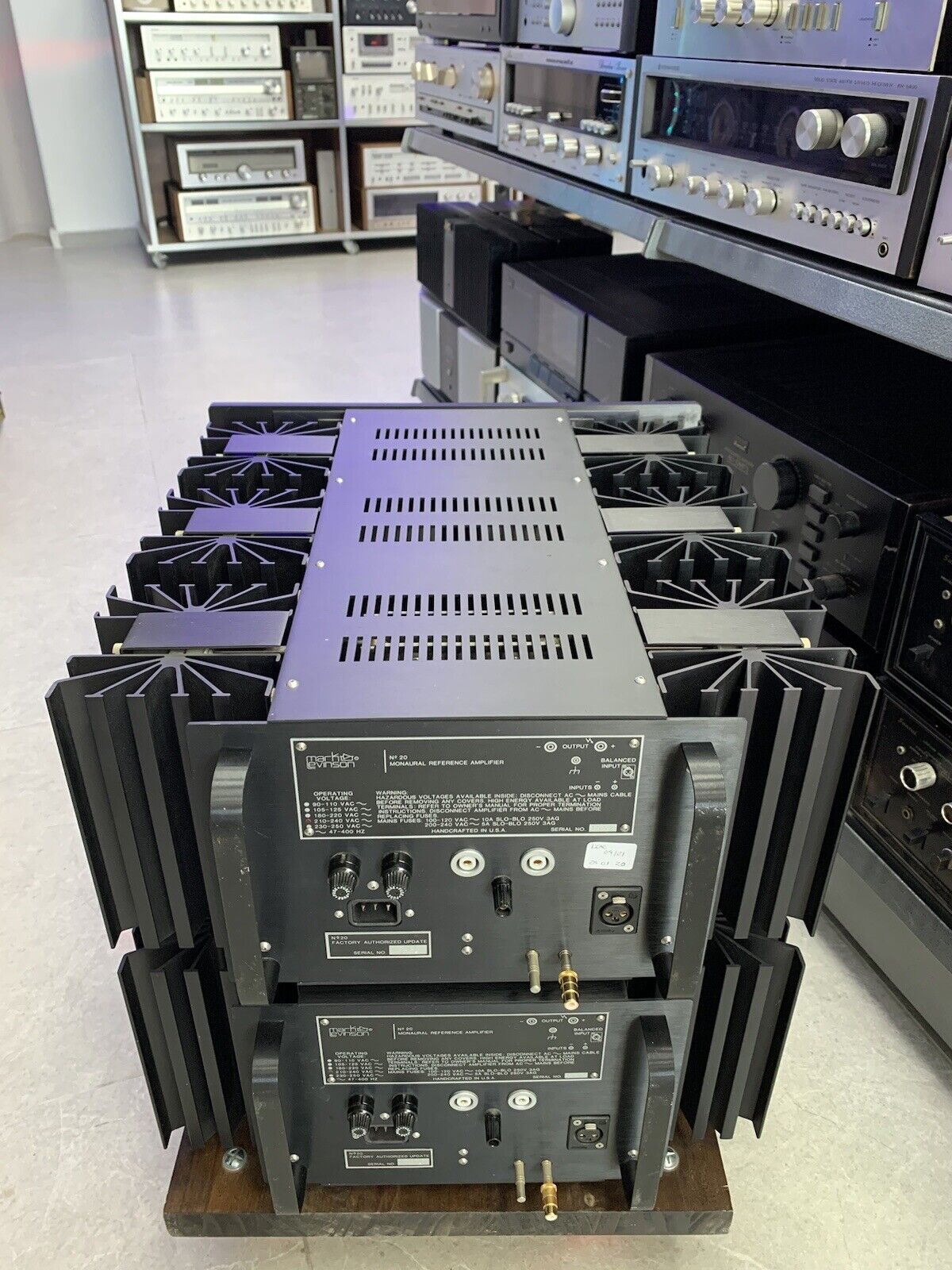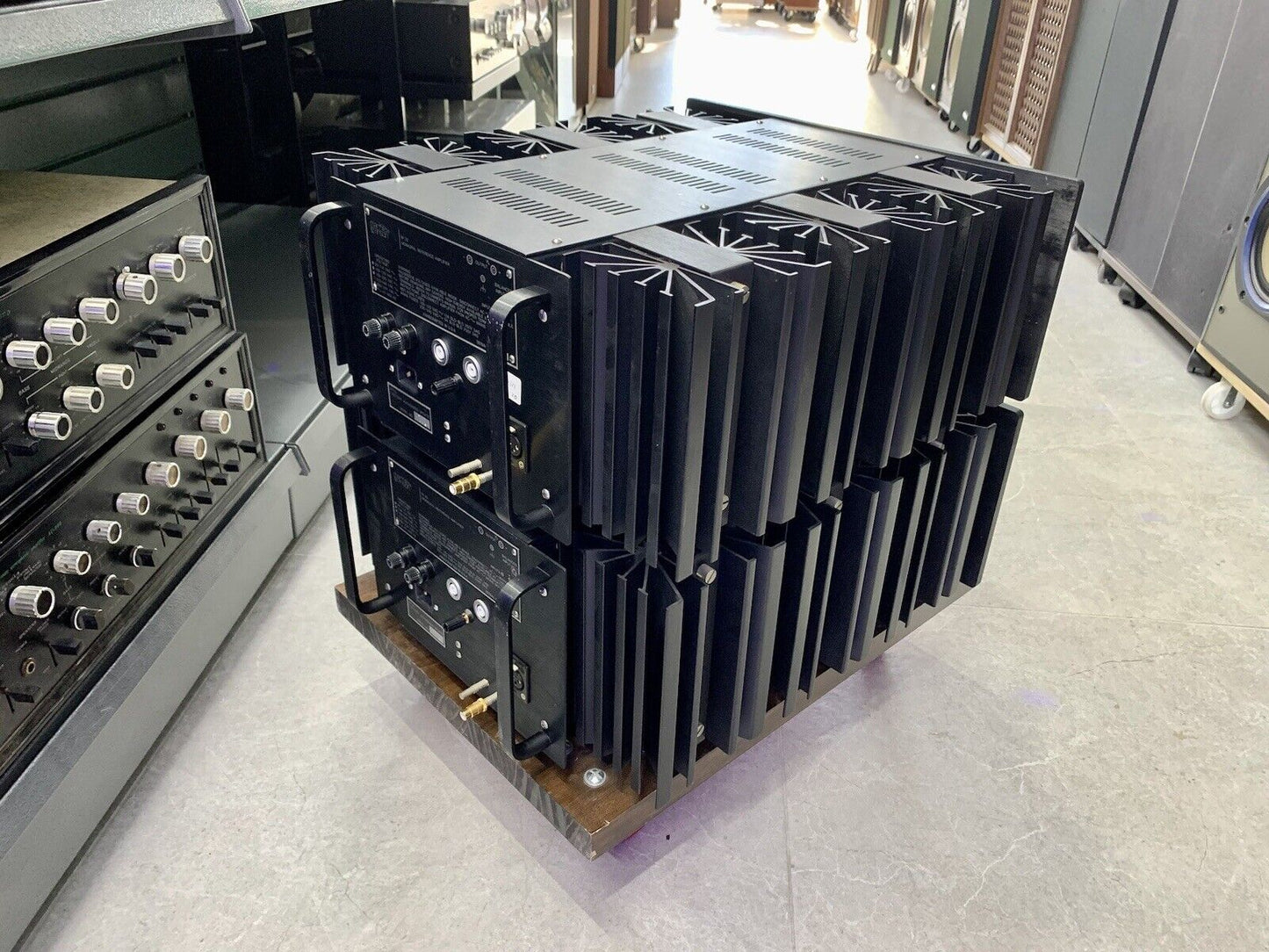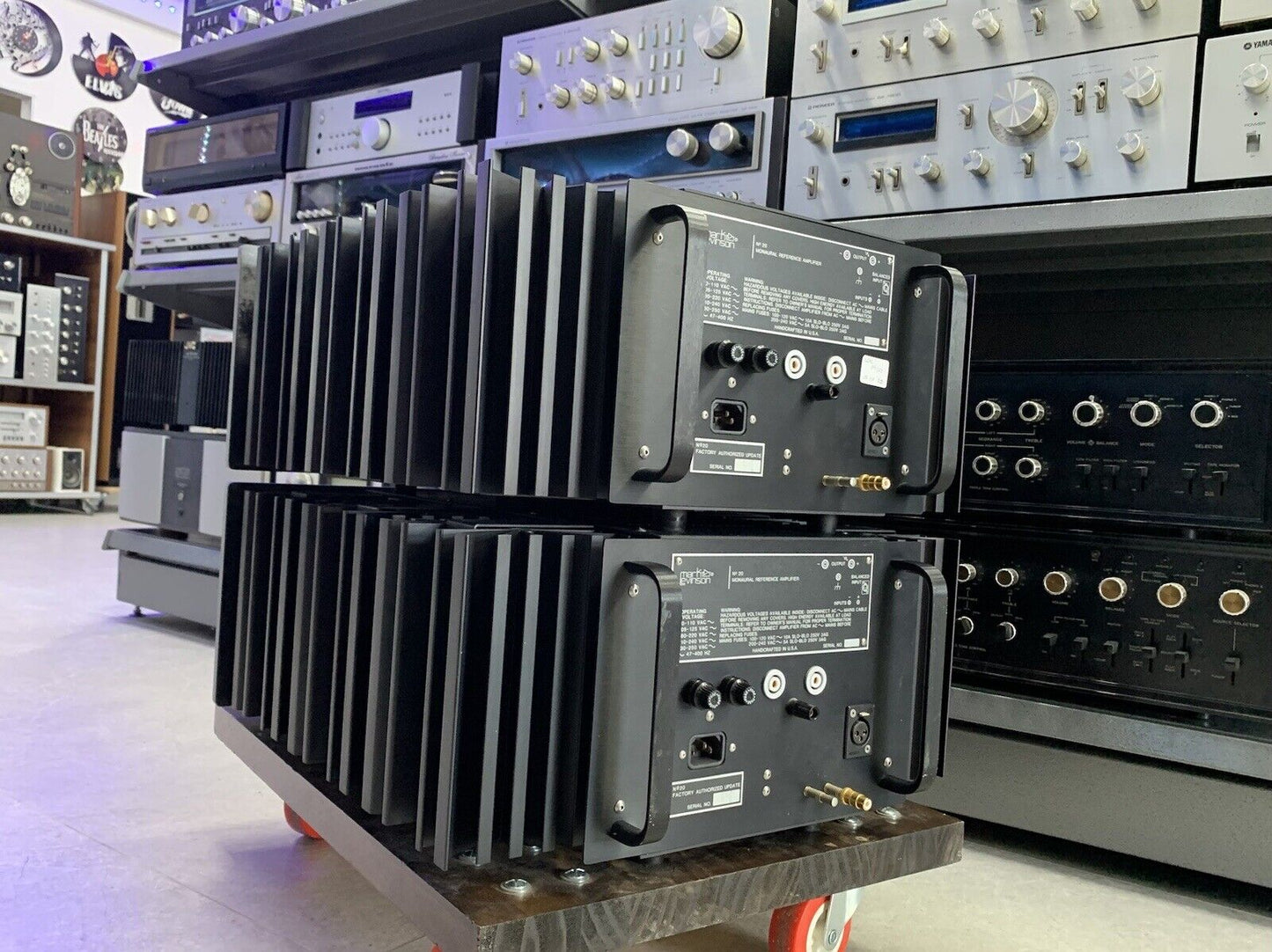Mark Levinson
MARK LEVINSON n. 20.5 MONAURAL Power Amplifier 2X 100 Watts RMS Hi End Good Look
MARK LEVINSON n. 20.5 MONAURAL Power Amplifier 2X 100 Watts RMS Hi End Good Look
Couldn't load pickup availability
MARK LEVINSON n. 20.5 MONAURAL Power Amplifier 2X 100 Watts RMS Hi End Good LOOK
WORK PERFECT, NO PROBLEM, VERY LOW USE
MARK LEVINSON n. 20.5
Dual MONAURAL MONOBLOCK Power Amplifier
100 Watts RMS / 8 ohmns
200 Watts RMS / 4 ohmns
400 Watts RMS / 2 ohmns
Hi End Good Look
Monaural Power Amplifier (1989)
Sidebar 2: No.20.5 Measurements
According to the specifications in the heading, the No.20.5 appears to be a "perfect" amplifier in that its output power almost exactly doubles when the load impedance is halved from 8 to 4 ohms, and again when it drops from 4 to 2 ohms. On the test bench, the measured continuous maximum output power into 8 ohms (actually 8.1 ohms) for a 1% distortion figure was 139.3W (21.4dBW footnote 1). Into 4 ohms, it raised 258.5W (21.1dBW), and into 2 ohms, 410.5W (20.1dBW), which is not far removed from the specification. (That these figures are a little higher than implied by the specification may be due to the wave-shaping taking place as the amplifier approaches clipping, which might allow slightly higher power to be reached for a nominal 1% THD figure.) Certainly this is one powerful amplifier, with its almost perfect "voltage source" nature indicated by the very small drop in the dBW figure each time the load impedance halves. Distortion levels were also low, THD and noise measuring around 0.005% across the band at a 1W output level with Stereophile's new Audio Precision test setup. The voltage gain was almost exactly to spec at 25.9dB, 100mV in giving 1.944V out.
For those who are wondering if the subjective bass strength noted was a function of a high output impedance, this was very low across the band compared with the Prodigy and other tube amplifiers, ranging from 0.012 ohms at 20Hz to 0.015 ohms at 1kHz and 0.05 ohms at 20kHz (measured at an output level of 50mW). The measured frequency response also gave no clues to the amplifier's tonal balance, this being ostensibly flat in the audio band, with a lower limit of -1dB at 7Hz and -3dB at 3.5Hz. Interestingly, though the No.20.5 subjectively had a heavier bass than the Prodigy OTL design, the latter actually had greater LF extension (both, of course, were ostensibly flat to 20Hz). This can be seen in the slope of the top of the waveform shown in fig.1, which shows a 20Hz squarewave measured at the terminals of the Celestion SL700 loudspeakers when driven by the Levinson. Compare that with fig.2, which shows the waveform when the speaker was driven by the Prodigy. (Both were measured at a 100mV input level.) I can only assume that the quality of the 20.5's subjective bass response has more to do with the incredible stiffness of its power supply.
Input sensitivity: 0.141V
Dimensions: 212.3 x 444.5 x 560.2mm
Weight: 2 X 40.9kg
Year: 1989
Share
